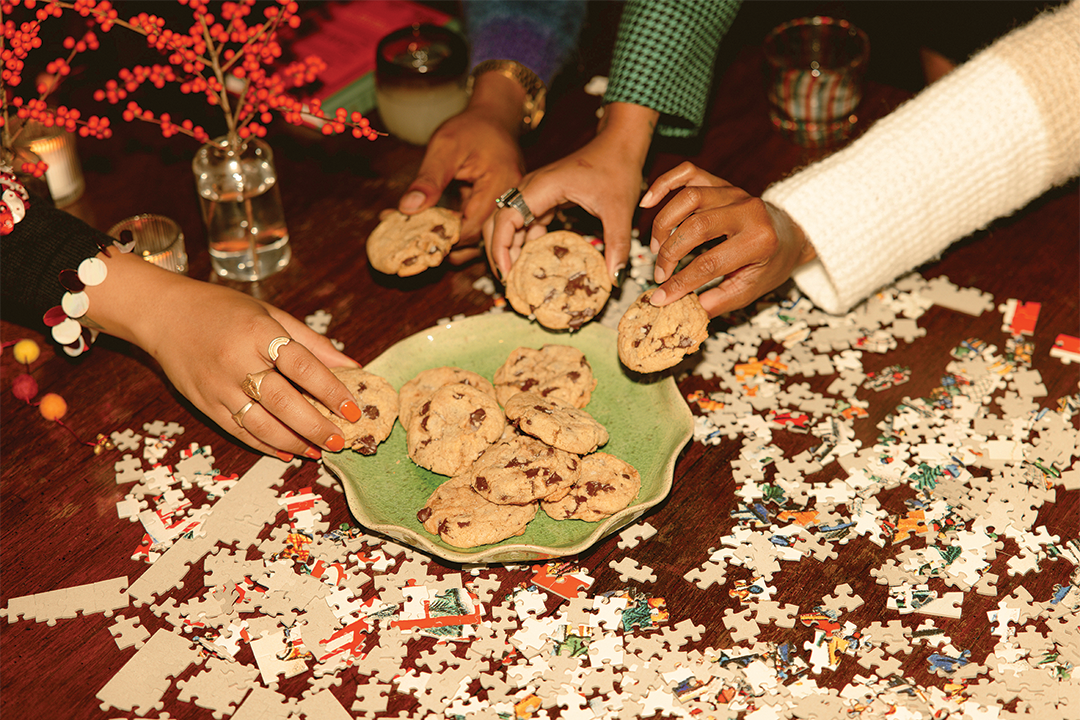A couple years ago, Bob McDonald and his family were supposed to host Thanksgiving dinner. Some 30 people planned to come over, but a day or two before the holiday, people started calling to say they were sick.
They canceled the gathering, says McDonald, director of community health at the Weld County Department of Public Health and Environment, but they made the food anyway. They left it on the doorsteps of friends and family who were taken down by the sickness.
“They weren’t feeling well, and they didn’t feel like cooking,” he says.
The three big respiratory viruses you’ll hear about every year are the flu, RSV and COVID-19. Dr. Michelle Barron, UCHealth’s senior medical director of infection prevention and control, often jokes that this is the time of year for sharing—and most of what we share is germs.
“They are circulating en masse by this point,” she says. “When we have parties and potlucks, those things come together nicely to ruin your potential plans by getting you sick.”
Vaccinations and handwashing
One of the best things you can do to keep yourself healthy is get vaccinated, Barron says. Vaccines don’t necessarily stop you from getting a virus, but they do minimize the effect they have on you if you get sick.
There has been a lot of noise about vaccines, access and recommendations as Robert F. Kennedy Jr., the U.S. Secretary of Health and Human Services, makes major changes at organizations such as the U.S. Food and Drug Administration and Centers for Disease Control and Prevention. In response to those changes—including the FDA’s decision to limit eligibility for COVID-19 vaccines—the Colorado Department of Public Health and Environment issued a standing order to allow all Coloradans ages 6 months and older to receive a COVID-19 vaccination without a prescription, according to a news release from the state.
“If you’re worried, talk to your provider,” Barron says. “We’re here to give you an understanding of what risks and benefits there are to any treatment we give you.”
The next best way to protect yourself from illness is to wash your hands, she says.
“My God, how many times have you touched your phone? You touch your phone a lot, and you probably touch your face a lot too, not realizing that everything that’s on your phone is coming in contact with your nose or your eyes,” Barron says.
If you’re traveling for the holidays or you just want an extra layer of protection to avoid catching or spreading germs, masks are also a great option, according to the CDC.
“Anybody who’s been on the train at DIA knows you’re packed in like sardines,” Barron says. “If somebody coughs, you’re going to get coughed on. Having a mask is good protection for that space.”
Eating healthy
As Weld County’s director of community health, McDonald spends a lot of time educating the public on how to avoid chronic diseases such as obesity and diabetes. Maintaining a healthy lifestyle will go a long way in preventing illness, he says.
“Maintaining a healthy weight, eating healthy and understanding which foods contribute to overall health and fighting off illness if you’re exposed are all fantastic ways to stay healthy regardless of the time of year,” he says.
Tips from the CDC on eating healthier include:
Τ Eating more fruits, vegetables, whole grains and fat-free or low-fat milk and dairy products (rather than full-fat products).
Τ Incorporating a variety of protein sources in your diet, like lean meats, poultry, eggs, seafood, legumes, soy products, nuts and seeds.
Τ Keeping sugar, sodium, saturated fat, trans fat and cholesterol at the daily recommended limit.
Τ Staying within your daily calorie needs.
But all that can be difficult during the holidays. Deanna O’Connell, a registered dietitian and community educator at UCHealth, suggests going to events in a relaxed state, possibly even after a workout, meditation or yoga session. If you’re anxious, you’re more likely to stress and make bad food choices, she says.
She also recommends keeping your daily routine as normal as possible, especially around food. If you often find yourself feeling bad or sluggish from all the holiday food and drink, she suggests taking some time to plan ahead and set your intentions.
“Maybe I decide I’m not going to eat Christmas cookies or holiday treats throughout the day,” she says. “I’m going set the intention of having them as a dessert.”
Managing stress
An overarching theme of O’Connell’s teachings is mindfulness. She recommends that people ask themselves two questions as they approach the holiday season:
1. How do you want to feel when the holidays are over?
2. What is meaningful or fulfilling to you, and what is mindless or draining to you?
Staying on top of stress can mean looking ahead at your work, family and faith obligations to figure out how to stay within a healthy stress level. That might mean skipping the holiday party at work if you’re starting to feel the strain or doing something completely different if you aren’t a fan of holiday festivities.
People often forget that stress can wear them down and compromise their immune system, McDonald says. Every time he’s stressed or not getting enough sleep, he seems to get a cold.
“A compromised immune system doesn’t necessarily mean you had recent surgery, or you have a chronic illness, or you have a physical disability,” he says. “It could be students who stay up late to study because they have a test to take. It can be as simple as a stressful lifestyle.”
Staying active
Much like eating healthy, staying active can be challenging when you’re traveling, hosting a holiday gathering or straying from your normal routine, O’Connell says. She recommends prioritizing your regular exercise routine, and if you don’t have one, she says you don’t have to wait until the new year to start.
“The holidays are an ideal time to get outdoors or start a walking program or exercise program,” she says.
Exercise can double as a way to socialize, O’Connell says, whether that means having a friend join you on a walk or at a Zumba class. The most important thing is to plan ahead.
“Rather than having a list of don’ts, like don’t overeat, don’t drink, don’t do this,” she says, “plan to flourish.”
_________________________________________________________________
Herbal & Home Remedies
Some home remedies provide temporary relief from symptoms, and they might even shorten the duration of your suffering when you get sick. Intermountain Health recommends the following remedies if you feel a cold coming on.
1. Elderberry extract
These berries are full of Vitamin C, antioxidants and fiber. Whether you use them in the form of syrups, tinctures or supplements, they’re thought to help keep sickness at bay. Many cough suppressants include elderberry and other medicinal herbs, like echinacea.
2. Vitamin C and Zinc
These nutrients can potentially shorten the duration of your cold. Increase your consumption of citrus fruits, strawberries, bell peppers and broccoli for a Vitamin C boost, and up your dose of zinc by eating more meat, beans, nuts and seeds.
3. Honey
Honey can help soothe sore throats and is known to have anti-inflammatory and antimicrobial properties. Just don’t give it to infants under 1 year old.
4. Saline rinses
Saltwater can help clear out bacteria and mucus from nasal passages. It’s important to use distilled, sterile or boiled water for a saline rinse.
5. Saltwater gargle
It might taste gross, but saltwater can help clear mucus from your throat and airways. It can also reduce inflammation.







